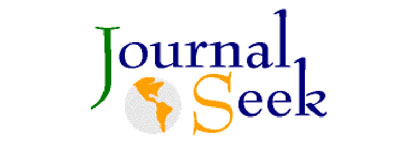| About JPAL |
| Aims and Scope |
| Editorial Team |
| Reviewer |
| Publication Ethics |
Editorial Policies
Focus and Scope
Indonesian Journal of Environment and Sustainable Development is an interdisciplinary journal with scope aspects of environmental impacts (biophysical and socio-economic) a result of development. The journal also examines the phenomenon of a complex interaction between development and the environment, with the aim of looking for alternative solutions in realizing sustainability of all aspects of human activity development related, i.e:
- Synergistic interactions among communities, development and the environment and their implications for the sustainability of development
- Technical, economic, ethical, and philosophical aspects of sustainable development
- Obstacles and ways to overcome them in realizing sustainable development
- Local and national development sustainability initiatives, their practical implementation
- Development and implementation of environmental sustainability indicators
- Development, verification, implementation and monitoring of sustainable development policies
- Aspects of sustainability in the management of land resources, water, energy, and hayari, towards sustainable development
- Impacts of agricultural and forestry activities on the conservation of soil and aquatic ecosystems as well as the preservation of soil and aquatic ecosystems and the preservation of biodiversity
- The impact of global energy use and climate change on sustainable development
- The impact of population growth and human activities on the resilience of food and natural resources for sustainable development
- The role of national and international agencies, as well as international arrangements in realizing sustainable development
- The social and cultural context of sustainable development
- The role of education and public awareness in realizing sustainable development
- The role of political and economic Instruments in sustainable development
- Alternative realize sustainable development efforts
- Other topics that are still relevant to the development and environmental sustainability
Peer Review Process
Publication of articles by JPAL is dependent primarily on their validity and coherence, as judged by blind peer reviewers, who are also asked whether the writing is comprehensible and how interesting they consider the article to be. All submitted manuscripts are read by the editorial staff and only those articles that seem most likely to meet our editorial criteria are sent for formal review. All forms of published correction may also be peer-reviewed at the discretion of the editors. Reviewer selection is critical to the publication process, and we base our choice on many factors, including expertise, reputation, and specific recommendations. The editors then make a decision based on the reviewers' advice, from among several possibilities:
- Accepted, with or without editorial revisions
- Invite the authors to revise their manuscript to address specific concerns before a final decision
- Rejected, but indicate to the authors that further work might justify a resubmission
- Rejected outright, typically on grounds of specialist interest, lack of novelty, insufficient conceptual advance, or major technical and/or interpretational problems
Open Access Policy
This journal provides immediate open access to its content on the principle that making research freely available to the public supports a greater global exchange of knowledge.
Article Processing Charges (APCs)
The article processing charge in Jurnal Pembangunan dan Alam Lestari is payable after the article is accepted for publication. The processing charge for one article is 1.200.000 IDR.
Policy of Screening for Plagiarism
The Journal team will judge any case of plagiarism. If plagiarism is detected before the article is published, we will alert the author(s), asking them to either rewrite the text or quote the exact text and cite the original source.
The galley proof will be scanned for detecting the plagiarism level. The tolerance for the plagiarism level for each article is < 5%. The revision will be required if the level is > 5%.
If plagiarism is detected after publication, the Journal team will conduct an investigation on its own merits. If plagiarism is found, the journal editorial office will contact the authors. Depending on the extent of the plagiarism, the paper may also be formally retracted.
Journal History
Jurnal Pembangunan dan Alam Lestari was first published in Indonesian. Starting in mid-2016 J-PAL began to accept all articles in English, so the journal title changed to Journal of Sustainable Development.













